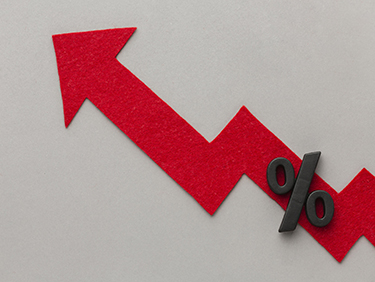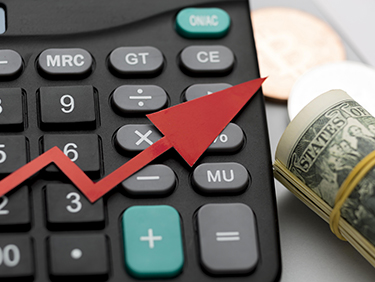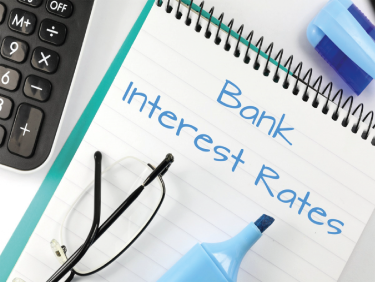HC expects the MPC to hold rates at its 21 December meeting
-
HC Securities & Investment shared their expectations on the likely outcome of the MPC meeting scheduled December 21st. Based on Egypt’s current situation, they expect the CBE to keep the policy rates unchanged.
MPCFinancials analyst and economist at HC, Heba Monir commented: “ We reduced our expectation for Egypt’s inflation, given the recent deceleration over the past two consecutive months, estimating urban inflation to rise by 1.9% m-o-m and 34.4% y-o-y in December, reflecting supply shortages of essential commodities and products mainly caused by the curbing of importation, exporting some crops and the USD shortage. The Egyptian government downward revised its real GDP growth forecast for FY23/24 to 3.5% from an earlier forecast of 4.2%, according to the minister of planning, lower than our forecast of 4.0%. According to data from the Central Bank of Egypt, Egypt’s banking sector’s net foreign liabilities (NFL) widened by USD340m m-o-m in October to USD27.2bn. Excluding the CBE, the banking sector’s NFL narrowed by USD482m m-o-m to USD15.9bn. The increase in NFL was mainly due to a widening in the CBE’s NFL by USD823m m-o-m to USD11.3bn, possibly related to Egypt’s external debt repayment. Also, based on our calculations, the gap between the parallel and official FX rates widened to as much as c60% and to c30% between the Real Exchange Rate (RER) and Real Effective Exchange Rate (REER) models. On a more positive note, net international reserves (NIR) increased by c4.9% y-o-y and 0.20% m-o-m to USD35.2bn in November, and deposits not included in the official reserves increased by c11.8% m-o-m and 3.71x y-o-y to USD6.18bn in November. Also, Egypt’s 1-year CDS dropped to 870 bps from its peak at 1,577 bps in the last MPC’s meeting, which translates into an average pre-tax required rate of return by investors of 27.9%, based on our calculations, derived by assigning a 15% weight to the required return by foreign investors and 85% weight to the required return by banks. The 27.9% required return implies a positive real interest rate of 0.11%, assuming an average 12M inflation rate of 23.6% and a 15% tax imposed on US and European investors treasury holdings versus a current negative real interest rate of 0.50% based on the latest 12M T-bills rate of 27.2%. Recently, the Egyptian government resumed talks with the International Monetary Fund (IMF) regarding completing the first and second reviews of its USD3.0bn Extended Fund Facility (EFF) and additional financing, which is crucial to ensuring the implementation of the policy package, according to the director of the IMF’s Communications Department. On the global front, the inflationary pressures had eased due to major economies’ monetary tightening and favorable base effects. Therefore, based on the recent deceleration of supply-driven inflation, the high likelihood that the Federal Reserve would maintain interest rates at its meeting today, and the improvement in Egypt’s CDS, we expect the MPC to hold rates at its 21 December meeting. We don’t rule out the possibility of a policy rate hike in the case of a movement in the FX rate; however, we see it as unlikely in the coming MPC meeting.”
It is worth mentioning that, in its 2 November meeting, the Monetary Policy Committee (MPC) of the Central Bank of Egypt (CBE) maintained the benchmark overnight deposit and lending at 19.25% and 20.25%, respectively, after it increased it by 300 bps y-t-d and 800 bps in 2022. Egypt’s annual headline inflation decelerated to 34.6% in November from 35.8% y-o-y in October, according to the Central Agency for Public Mobilization and Statistics (CAPMAS) data. Monthly prices rose 1.3% m-o-m in November compared to a 1.0% m-o-m increase in the previous month. On the global front, the US Federal Reserve raised interest rates in July by 25 bps to a range of 5.25-5.50%, a total of 100 bps y-t-d and 425 bps in 2022, with most expectations likely to maintain rates in its meeting today, according to expectations.
About HC Securities & Investment
HC Securities & Investment is a leading investment bank in Egypt and the MENA region. Since its inception in 1996, HC has utilized its relationship-driven insights, local and regional market knowledge, and industry-specific expertise and strong execution capabilities to provide its clients with a wide range of services in investment banking, asset management, securities brokerage, research, custody and online trading through its offices in Egypt and the UAE (DIFC). HC Investment Banking has an outstanding track record of advising leading corporates in Egypt and the MENA region on M&A, capital market, and financing transactions in excess of USD6.6bn. HC Asset Management now manages 7 mutual funds for commercial banks and portfolios for institutions and sovereign wealth funds with assets under management in excess of EGP7bn. HC Brokerage is ranked among the top brokers in Egypt and provides a wide array of services, including research and online trading to institutional and retail clients.









